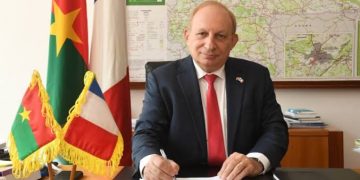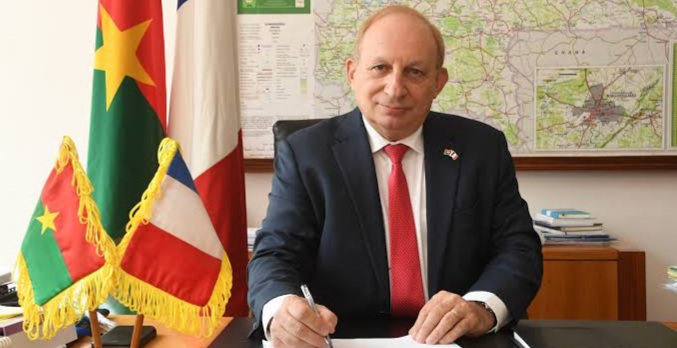By Oyintari Ben
The military junta in Burkina Faso has expelled France’s ambassador amid a rise in anti-French sentiment as the West African nation attempts to forge stronger ties with Russia.
The Associated Press was informed that Ambassador Luc Hallade had been ordered to leave, but the government spokesman Jean-Emmanuel Ouedraogo made no more comment. French diplomatic officials declined to comment.
The United Nations representative and humanitarian coordinator in Burkina Faso, Barbara Manzi, was similarly proclaimed persona non grata less than two weeks prior to Hallade’s deportation.
Thousands of people have been killed and almost 2 million people have been displaced by violence in Burkina Faso that is related to al-Qaida and the Islamic State group.
A previous junta was overthrown by the present military dictatorship last year on the grounds that it hadn’t done enough to put an end to the war. The previous junta had used the identical justification to overthrow a democratically elected government months earlier.
Since Capt. Ibrahim Traore, the new junta leader, took over in September, anti-French sentiment has risen throughout the former French colony. Traore has been more outspokenly willing to cooperate with other nations, particularly Russia. According to Russia’s foreign ministry, the Burkinabe Prime Minister Apollinaire Joachim Kyelem de Tambela visited that country last month to improve ties and coordinate regional efforts to combat extremists.
One year ago, Mali’s junta also expelled France’s ambassador, and now Hallade has followed suit.
Although the military leaders of Burkina Faso regard re-establishing security as their top priority, terrorist attacks have persisted and are becoming more frequent.
In the east last week, a bus struck a roadside bomb, killing at least eleven people. Jihadists have encircled communities, restricting movement and causing a humanitarian crisis that is starving tens of thousands of people to death.
The French envoy’s removal, according to analysts, was not unexpected because the junta is imitating Mali. The question now is whether Russia would increase its influence in the area as a result.
According to Samuel Ramani, associate fellow at the Royal United Services Institute, a defence and security think tank, “this will clearly sharpen the polarization among (West African countries), between the states that are opposed to the junta’s policies and those that want to transition towards democracy.”


































